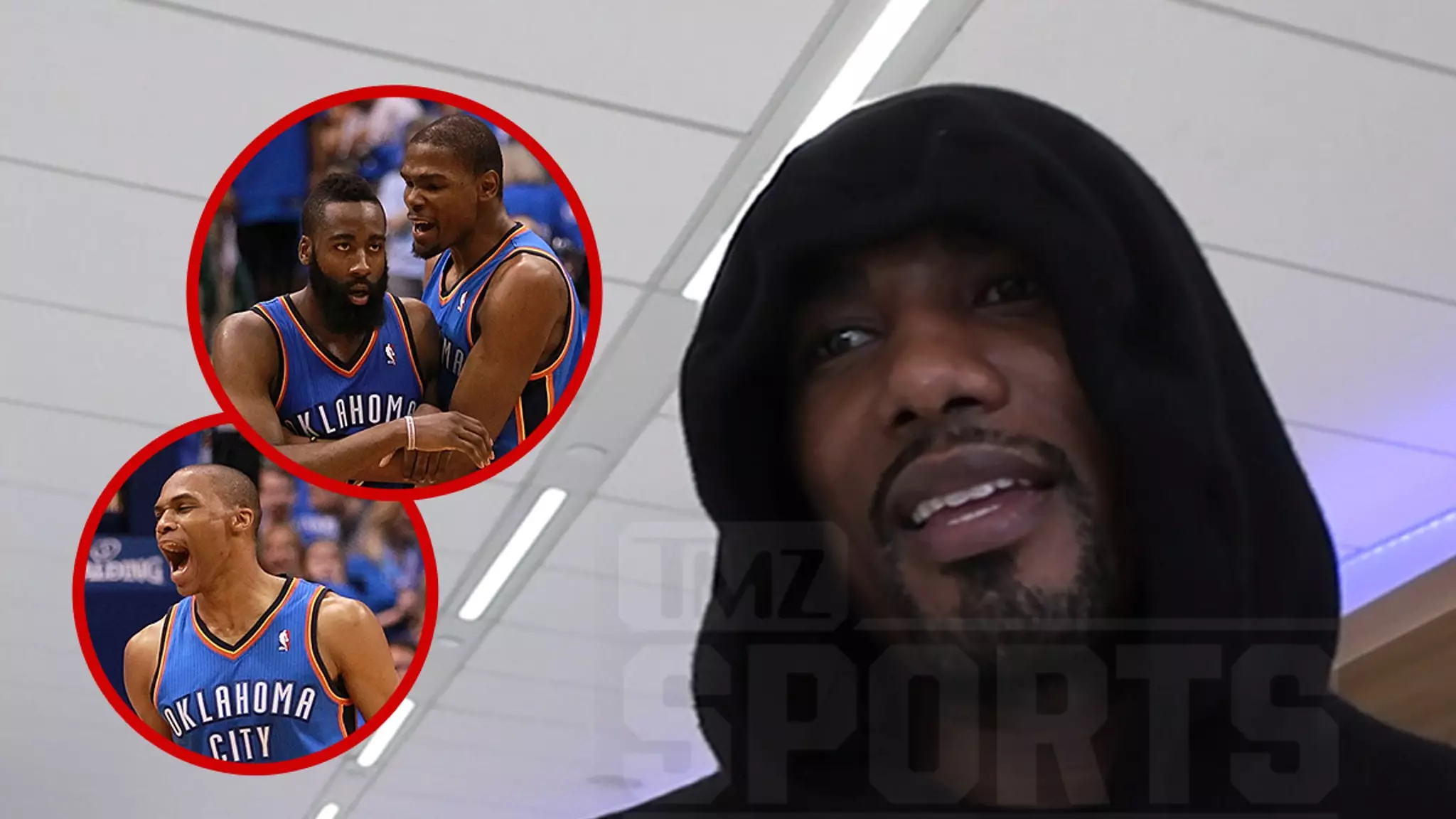The story of the Oklahoma City Thunder’s missing championship banners is a compelling testament to what might have been—a colossal what-if in NBA history. Serge Ibaka’s recent claims underscore a fundamental truth: the Thunder’s brightest window was perhaps just a few key decisions away from eternal glory. The trio of Kevin Durant, James Harden, and Russell Westbrook was once heralded as the most promising young core in the league, and their collective talent hinted at postseason dominance. Yet, despite flashes of brilliance, a fractured team chemistry and management’s decision to split up the group prevented the thunder from reaching the mountain top more than once.
This missed opportunity reveals a deeper narrative about the volatility of superstar collaborations. In the NBA, building a dynasty isn’t just about acquiring talent; it’s about maintaining cohesion and managing egos. The Thunder’s downfall, as Ibaka suggests, revolved around the inability to keep their core intact during critical years. Harden’s trade to Houston, which the player himself claimed was a blow to their championship aspirations, left fans pondering how many rings they could have secured had the players remained together. The potential dynamic of Durant, Harden, Westbrook, and Ibaka, all in their prime, was undeniably championship-caliber—yet circumstances, management decisions, and injuries repeatedly derailed those dreams.
The Future of Oklahoma City and the Power of Youth
Fast forward to today, and Ibaka’s optimism about the current Thunder roster reveals a belief in cyclical growth and resilience. The new young core is poised to contend, with their talent and potential giving hope for an imminent return to championship contention. Ibaka’s confident assertion that they could potentially win three titles if they stay united speaks to the raw talent embedded deep within the team. His perspective resonates with anyone who believes in the rejuvenating power of youth and strategic continuity. The Thunder, often underestimated or overlooked, possess the raw ingredients that could forge a new dynasty.
But beyond talent, what makes Ibaka’s outlook refreshing is his honesty and belief in long-term team development. It’s a reminder that basketball success often hinges on stability and patience, qualities sometimes sacrificed for short-term gains. Ibaka’s comments serve as a rallying cry—if the Thunder can hold onto their core and gel over time, their window for greatness remains open. His own ventures into music and cooking signify an IP-like versatility, suggesting that life beyond basketball, much like within the sport, hinges on innovation and adaptability.
In essence, the story of the Thunder underscores a vital lesson: greatness in the NBA is as much about timing and management as it is about talent. While the past may be filled with what-ifs, the future can still be bright if the right pieces come together—something Ibaka firmly believes is within reach for Oklahoma City.

